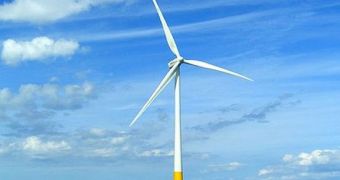In a surprising move, 29 large European companies and corporations called for more severe emissions reduction measures, of up to 30 percent by 2020, from levels recorded in 1990.
In a joint statement, representatives from these companies said that the measure will help strengthen the future of the European economy, while at the same time creating new jobs.
If adopted, the measures would also contribute to establishing more investor trust, as the markets will become a lot more predictable and certain than they are now, the document further adds.
According to the World Wildlife Fund (WWF), this is the first time ever when such a large group of diverse companies is calling for such an ambitious plan to reduce greenhouse gas emissions.
The joint business declaration is entitled “Increasing Europe’s Climate Ambition will be Good for the EU Economy and Jobs.”
It is supported by Vodafone, Sony Europe, Google, Marks and Spencer, Nike, Philips Lighting, Climate Change Capital, F&C Asset Management, GE Energy, Johnson Controls Inc, and Kingfisher.
Additional supporters include Acciona, Alstom, Asda, Atkins, Barilla, BNP Paribas, BskyB, Capgemini, Centrica plc, Crédit Agricole, DHV Group, Elopak, Eneco, SKAI Group of Companies, Standard Life, Swiss Re, Tryg, and Thames Water.
“By moving to a higher target, the EU will have a direct positive impact on the carbon price and on low-carbon market creation through to 2020,” explains the EU director of the Cambridge Program for Sustainability Leadership, Sandrine Dixson-Declève.
“This will deliver the economic signals and regulatory certainty that companies need if they are to continue investing billions of Euros in low carbon products, services, technologies and infrastructure,” she adds.
“The businesses signing this declaration already understand that the financial risk of weak action on climate change is far greater than the cost of investing today,” the expert says.
What is interesting to note is that the current European target is for the Union to cut emissions by only 20 per cent from 1990 levels within the next decade.
According to the document, the measure supported by the nearly 30 companies is essential for ensuring that the EU remains economically competitive with China and the United States in the long run.
In order to obtain the maximum benefit from the cuts, decisions to apply them should be taken right away, the document suggests.
“Greater ambition on climate policy will help drive systemic improvements in efficiency and capital investment that will benefit both society and forward thinking businesses like these,” says Jason Anderson.
“Far from being a threat to the economy, European action on climate could be the spark of a new wave of innovation,” adds the official, who is the head of European Climate Change and Energy Policy at the WWF.

 14 DAY TRIAL //
14 DAY TRIAL //